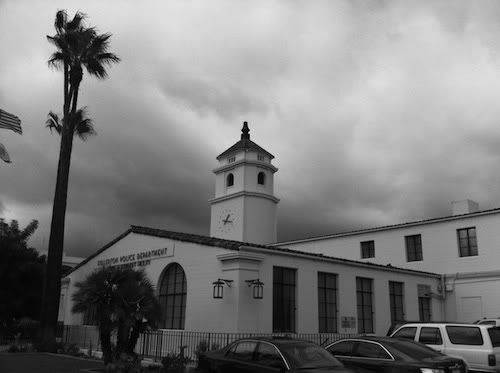Government programs have always been a source of controversy in the United States. Generally speaking, these days, conservative Republicans and libertarians tend to be against government programs and spending, and liberal Democrats and the Green Party folks tend to be for government programs and spending. As with most things, the issue of government spending is not nearly so black and white as it is presented in public debate.
Let’s take the Works Progress Administration during the Great Depression as an example. This was perhaps the largest case of government spending (aside from war) in the history of America. I remember, in my high school history class, talking about how people called Roosevelt a “socialist” in those days, because he favored these programs, just like how people call Obama a “socialist” today because he favors more government spending.
In an interview for the CSUF Oral History program, Elvin A. Ames, a faculty member at Fullerton High School during the Great Depression, describes a family who was affected by the Depression and received help from the WPA:
“I remember I had a boy in school, whose father was a carpenter and out of work and not doing very well. I knew the family quite well so I wrote a note to the home telling them that I couldn’t understand why this boy had let down so on his work. He was a good student but he was failing. I got a note back saying, ‘Well, Mr. Ames, perhaps if you had only beans to eat, you wouldn’t do so well.’ It certainly set me down a peg. I didn’t realize that the Depression hit some people so hard. Just about that time, the Works Progress Administration, the federal works program was started and we were able to give a lot of these fathers employment” (8).
In that case, in the case of starving families, I would have to say that government spending was a good thing. It gave men work so they could provide for their families.
One criticism people often level against such programs is that they are inefficient and create unnecessary bureaucracy. To this charge, I would respond...sometimes. You have to take these things issue-by-issue.
In Fullerton, some WPA programs undeniably helped people and also created new public buildings for schools, many of which are still used today. But this was not always the case. Ames describes going to a meeting with a representative from the Federal Works Program during the Depression: “The representative made the statement right away that they wanted to get a certain amount of money in the district. I think that the Fullerton High School District was offered $30,000 and he wanted it to be spent in three weeks” (8). So how did they spend the money? They turned the football field around so the sun would not shine in the players’ faces during games. Ames recalls, “I thought by doing all of it by hand—which they wanted us to do—we could probably get rid of a lot of money” (8).
On the one hand, this project did give a lot of men jobs. On the other hand, it was a giant waste of money. Even Ames discusses getting “rid of a lot of money.” Who gives a shit if football players have the sun in their eyes? Was this a real priority? No. It was inefficient and pretty stupid. So, in this case, the WPA could rightly be criticized.
The controversy of publicly-funded projects is not just a thing of the past. In Fullerton, one of the most hotly-debated political issues is the Redevelopment Agency, which spends millions of taxpayer dollars to “improve” our community. On the one hand, this program has done some good things. It allowed the library to be renovated. It helped preserve and retrofit many of the historic buildings downtown.
But on the other hand, it has done some pretty boneheaded things. It spent six million dollars to put Astroturf on a football field. A few years ago, Mayor Pro-Tem Bankhead voted to spend a million dollars of Redevelopment money to move a McDonalds 150 feet east. Thankfully, that didn’t pass. So, as with most issues, you have to take it case-by-case.
This issue of the Redevelopment Agency is complicated by another element today. Whereas during the Depression, the work went to men who actually needed jobs, today the contracts often go to companies who contribute money to a candidate’s campaign. The issue is further complicated by the fact that Governor Brown has recently pushed legislation to eliminate redevelopment agencies, and the City of Fullerton has decided to keep theirs anyway, by paying more taxpayer money to Sacramento.
So how do we deal with these issues? I don’t have any answers. For now, I’ll just keep trying to understand.

The Fullerton Police Station (formerly City Hall) was built by the WPA in 1939.
